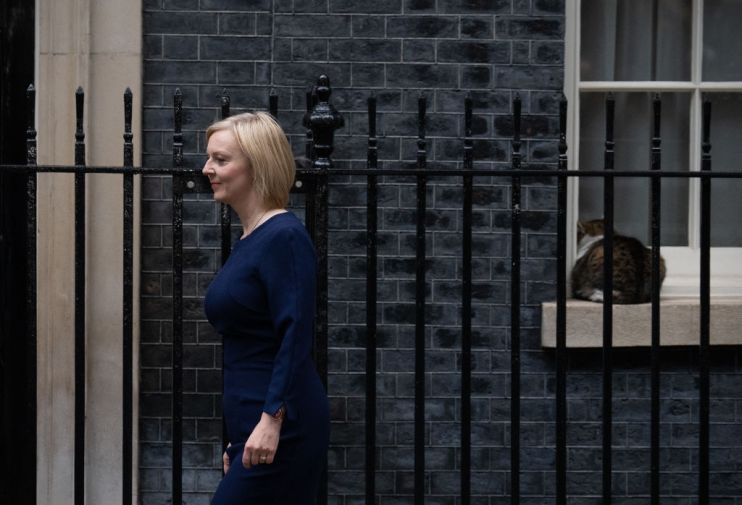UK borrowing costs surge and FTSE tanks after Truss and Kwarteng back mini-budget

UK borrowing costs fired higher and the country’s largest listed companies tanked today after prime minister Liz Truss and chancellor Kwasi Kwarteng doubled down on their tax cutting and borrowing plans.
London’s FTSE 100, home to the UK’s top companies, shed 1.77 two per cent. The mid-cap FTSE 250 index nose dived more than three per cent.
Rates across the curve for UK government bonds, known as gilts, scaled higher today.
The yield on the 10-year UK government bond, known as a gilt, climbed around nince basis points to 4.09 per cent.
The 2-year gilt added 11 basis points, while the 30-year bond, which has registered a notable uptick this week, edged higher to trade just below four per cent.
Yields on 10-year gilt have surged since mini-budget

Yields and prices move inversely, meaning today’s rate gains mean bond prices are falling.
Climbing rates come after prime minister Truss took to local BBC radio stations to slap down calls to ditch her £45bn tax and borrowing package.
The pound initially tumbled around one per cent against the US dollar after Truss’s comments, but then swung to a 1.3 per cent, underscoring how volatile UK assets are right now.
Sterling hit a record low against the greenback earlier this week. Despite that, it is actually up against the dollar so far this week.
The rapid acceleration in UK borrowing costs since last Friday’s mini-budget yesterday pushed some pension funds near insolvency, forcing the Bank of England to inject £65bn of emergency cash into markets to avert a “material risk” to the country’s financial plumbing.
At one point yesterday, yields on long-term government debt kissed a 24-year high, before reversing a whole percentage point after the Bank’s intervention. Such swings on bond markets are extremely rare.
Breaching cover for the first time since last Friday’s mini-budget drove wild-swings on financial markets, Truss backed her plans.
“We had to take decisive action” to boost the UK economy, Truss said, adding she is prepared to take “controversial and difficult decisions”.
Her chancellor, Kwasi Kwarteng, reiterated that bullish sentiment.
“We are sticking to the growth plan and we are going to help people with energy bills. That’s my two top priorities,” he told the PA news agency.
The pair have insisted wild movements in UK asset prices are in line with a repricing spreading across global financial markets.
However, Huw Pill, chief economist at the Bank, seemed to hit back at those claims today.
“Part of that re-pricing reflects broader global developments. Part of it reflects the ongoing normalisation of macroeconomic policy after the pandemic-induced episode of exceptional ease. But there is undoubtedly a UK-specific component,” he said.
He repeated his message that the Bank will likely hike rates forcefully at its next meeting on 3 November.
The world’s top economic institutions and experts have sharply critcised Truss’s measures fears they will fail to lift growth, fuel inflation and sour investor confidence in the UK.
Speaking to the BBC’s Today programme this morning, former governor of the Bank of England, Mark Carney, said the government’s mini-budget illustrated it is “working at some cross-purposes with the Bank [of England]”.
Carney said it was wrong for the government to not ask Britain’s official forecaster, the Office for Budget Responsibility (OBR), to publish an assessment of last Friday’s measures.
According to Tory MP and chair of the treasury committee Mel Stride, the OBR could publish their forecasts at the end of October, earlier than the previously scheduled 23 November to accompany Kwarteng’s statement setting more details on his plan for growth.
The Bank is trying to tame inflation by hiking interest rates, while the government is trying to protect demand with unfunded tax cuts. Inflation is running at a 40-year high of 9.9 per cent.
Earlier this week, the International Monetary Fund, the world’s lender of last resort, urged Truss and chancellor Kwasi Kwarteng to rethink their tax and borrowing plans.